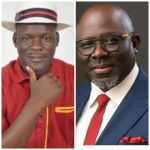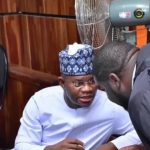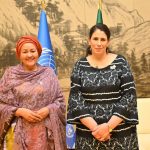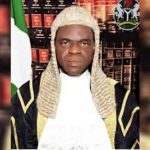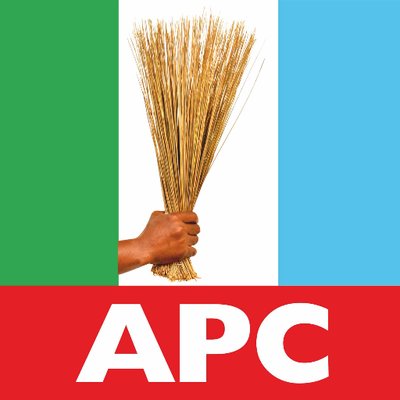Cracks in the North: APC’s Sokoto Rift Deepens Ahead of 2027.
By Bala Salihu Dawakin Kudu Democracy Newsline Newspapers.
September 14th, 2025
The political temperature in Sokoto State has begun to boil as the All Progressives Congress (APC) faces an escalating internal crisis that threatens not only the cohesion of the party in the state but also its prospects for the 2027 general elections. What began as a quiet discontent has now grown into a full-blown Cold War between two powerful factions—one loyal to Senator Aliyu Magatakarda Wammakko, the former governor and APC chieftain, and the other rallying behind the current serving Senator, Ibrahim Lamido, who represents Sokoto-East in the National Assembly.
The simmering tensions, according to party insiders, have now torn the Sokoto State chapter of the APC into two irreconcilable camps. At the heart of the crisis is what insiders describe as a long-standing battle for the soul of the party—one marked by rivalry, suspicion, and unrelenting political ambition.
Senator Wammakko, often referred to as the “godfather” of Sokoto politics, continues to command loyalty from a significant number of party stakeholders, including the state governor, whose allegiance to Wammakko has not gone unnoticed.
Senator Lamido, however, has accused the governor of openly siding with the Wammakko camp, a move he says has “undermined party unity” and emboldened “undemocratic tendencies” within the party structure. In a recent press interaction, Lamido did not mince words, narrating the ordeal his supporters have faced:
> “The party under the control of Wammakko has marginalized all dissenting voices. Even the governor, who should be a neutral figure, has chosen his loyalty over leadership. This is no longer a family disagreement—it is political sabotage,” Lamido lamented.
In what many describe as the most significant internal rebellion in the history of APC in Sokoto, political office holders loyal to Senator Lamido are reportedly preparing to resign en masse. While no official resignations have yet been tendered, sources close to the Lamido camp confirmed that talks are underway to explore “alternative political alignments.”
In response, the state APC Chairman, Hon. Saidu Isa Achida, issued a defiant statement:
> “If some individuals believe their interests are no longer aligned with the APC in Sokoto, we welcome their decision to leave. The party will not be held hostage by threats or blackmail.”
Achida’s tone suggests that the Wammakko-led faction is prepared to consolidate its hold on the party, even if it means shedding members seen as disloyal.
While the intra-party conflict currently plays out within Sokoto borders, it has begun to attract national attention, especially with the 2027 general elections looming. Political analysts believe that the collapse of the Sokoto APC could weaken the party’s northern stronghold and hand the opposition a major advantage.
In Abuja, whispers of a possible coalition forming to unseat President Bola Ahmed Tinubu in 2027 have also sparked tension. When Senator Wammakko was asked during a recent press event about these emerging coalitions and whether he would back any efforts to challenge Tinubu’s presidency, he brushed the question aside:
> “It’s too early to speak on baby politics,” he said with a faint smile. “Let the country breathe first.”
The collapse of unity in Sokoto’s APC signals a dangerous trend for the ruling party. Unless decisive reconciliation efforts are undertaken, the state chapter may go into the 2027 elections fractured, underfunded, and outmaneuvered by a revitalized opposition.
For now, all eyes remain on Sokoto as the once-mighty APC finds itself on the edge of political ruin. The Cold War may not yet be hot, but the silence between allies-turned-rivals is deafening—and the consequences could echo across Nigeria’s political landscape.

